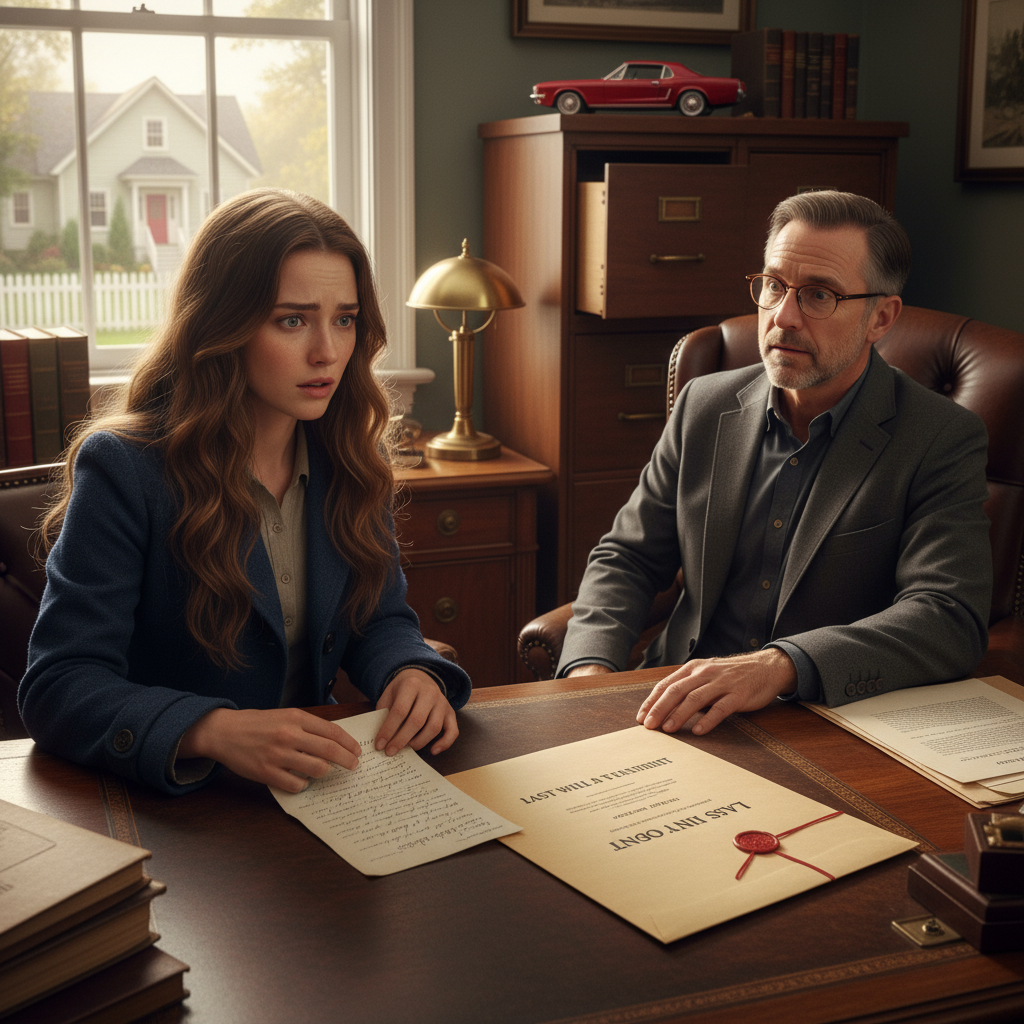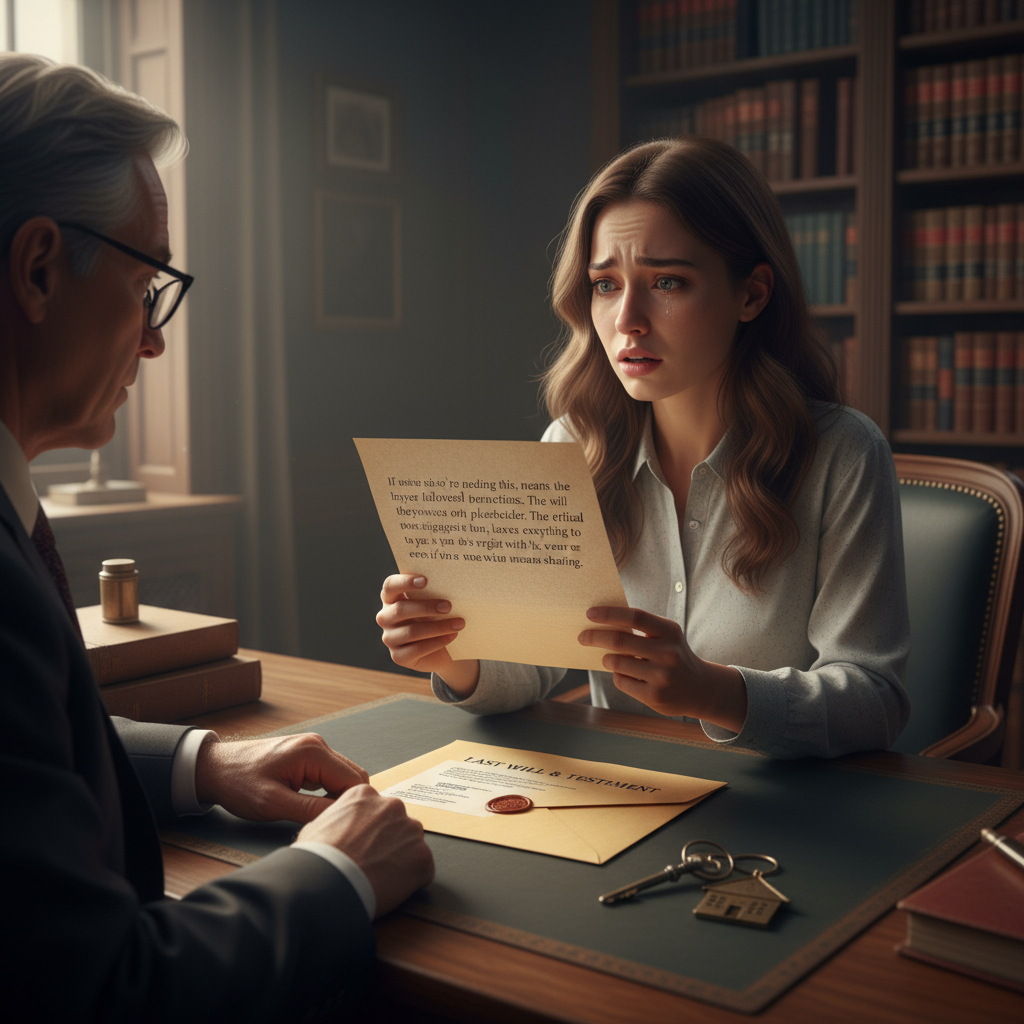My grandfather, who I was very close to, passed away last month. When the will was read, I was shocked to find out he had left everything to my sister—his car, his savings, and the small house. She had hardly ever visited him, and I couldn’t understand why.
I asked her to split it with me, since we were both his grandchildren and I felt there must have been a mistake. But she just shook her head and said, “I can’t go against Grandpa’s wishes.”

A few months later, I put on my old coat and felt something in the pocket. It was a folded note. My heart stopped when I saw Grandpa’s handwriting. He must have slipped it there during his last days, when I was visiting him every day.
With shaking hands, I opened it and read: “If you’re reading this, it means the lawyer followed my instructions. The will they read was only a placeholder. The official one, signed and notarized, leaves everything to you. I trust you to do what’s right with it, even if that means sharing. You were the one who never left my side.”
My hands shook as I folded the note back up. The next morning, I went straight to the lawyer’s office. His eyes widened when I placed the note on his desk. After a pause, he unlocked a file drawer, pulled out a sealed envelope, and slid it across to me.

It was the real will. And it had only one name on it—mine. Grandpa had left everything in my name alone—his small house, his vintage car, and his savings. Along with them came his note, reminding me that it was up to me whether to share with my sister or not.
Now I find myself torn. Part of me wants to honor his trust by keeping things as he intended, especially since my sister never made the effort to be there for him. Yet another part of me fears that if I don’t share, I’ll carry the weight of guilt for the rest of my life. The decision is mine, but it’s a burden I never expected to face.
Source: brightside.me